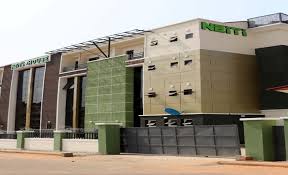Nigeria and other African countries pay a whopping $4.2billion on debt servicing. Nigeria, according to the National Bureau of Statistics (NBS), the country’s public debt stock which includes external and domestic debt stood at N121.67 trillion ($91.46 billion) in Q1 2024 from N97.34 trillion ($108.23 billion) in Q4 2023.
This indicates a growth rate of 24.99per cent on a quarter-on-quarter basis. Total external debt stood at N56.02 trillion ($42.12 billion) in Q1 2024, while total domestic debt was N65.65 trillion ($49.35 billion). The share of external debt (in naira value) to total public debt was 46.05per cent in Q1 2024, while the share of domestic debt (in naira value) to total public debt was 53.95per cent. NBS stated that while Lagos recorded the highest domestic debt in Q1 2024 with N929.41 billion, Delta with N334.90 billion; Jigawa recorded the lowest domestic debt with N2.07 billion; followed by Ondo with N16.40 billion.
The study estimates that the premium on debt servicing costs African countries $4.2 billion each year. This amount could fund the education of over 12 million children, provide immunisations for more than 73 million children, or ensure clean drinking water for two-thirds of Nigeria’s population.
The research focused on media coverage during elections in four African countries—Kenya, Nigeria, South Africa, and Egypt—compared to non-African nations like Malaysia and Denmark. It found that negative narratives dominate the discourse around African elections, with 88per cent of media articles about Kenya during its election period reported as negative, compared to only 48per cent for Malaysia.
By analysing potential savings in debt servicing costs for Nigeria, Kenya, Egypt, and South Africa, researchers found that improved media sentiment could reduce borrowing interest rates by up to one per cent, translating to potential savings of $4.2 billion annually across the continent.
The new research conducted by Africa No Filter and strategic advisory firm Africa Practice, entitled: The Cost of Media Stereotypes to Africa employed a combination of quantitative analysis and qualitative insights to explore the financial repercussions of media bias.
The research focused on electoral processes in four African nations: Kenya, Nigeria, South Africa, and Egypt, comparing media coverage with that of Malaysia, Denmark, and Thailand – nations with similar country risk profiles.
On the economic impact of biased media reporting, the report stated that to estimate the economic cost of biased media coverage, researchers calculated potential savings in debt servicing costs for Nigeria, Kenya, Egypt, and South Africa. The study used academic estimates indicating that media sentiment can influence borrowing interest rates by up to 10 per cent, with a 10per cent improvement leading to a one per cent decrease in rates.
By comparing actual debt servicing costs with those adjusted for improved media sentiment, the researchers estimated potential savings of up to 0.14per cent of gross domestic product (GDP) per year. Extrapolating this to the entire continent, Africa loses up to $4.2 billion annually due to unrepresentative negative media narratives.
To put this figure into perspective, $4.2 billion could fund the education of over 12 million children in Africa – the population of Tunisia. It could provide immunizations for over 73 million children – more than the combined populations of Angola and Mozambique. It can provide clean drinking water to over two-thirds of the entire population of Nigeria, the most populous country on the continent at 220 million people.
As the African Union (AU) moves toward establishing its own Africa Credit Rating Agency to address the perspectives that currently inform the ratings, there is a growing movement to challenge the biases inherent in the global financial system and to examine the role media has. The agency aims to provide a fairer, regionally based analysis of sovereign risk, moving away from the pessimistic assumptions often made by international rating agencies with limited local presence.
Executive Director, Africa No Filter, Moky Makura, said: “The scale of these figures underscores the urgent need to challenge negative stereotypes about Africa and promote a more balanced narrative.”
The report emphasises that while Eurobond debt servicing constitutes only six per cent of Africa’s financing portfolio, further exploration into other financial inflows is essential to fully understand the extent of the premium affecting African nations.
The findings underline the need for a recalibration of global media representations of Africa, urging for more accurate portrayals that reflect the continent’s diverse realities.
“Current global media reporting often exaggerates the risks associated with doing business in Africa, contributing significantly to the premium that hampers investment,” CEO Africa Practice, Marcus Courage, said.
The study serves as a clarion call for stakeholders in both media and finance to work collaboratively towards fostering a more equitable representation of Africa. By addressing these biases, substantial investment can be unlocked.





